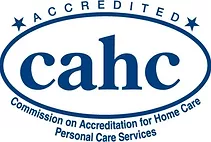November is National Diabetes Month, a time to raise awareness about diabetes and its impact, especially among seniors. With proper management, individuals can live normal, healthy lives while effectively managing their diabetes. Here’s how to discover, treat, and avoid diabetes, along with tips for maintaining a healthy lifestyle.
Diabetes is a chronic condition that affects how the body processes glucose. There are two main types:
Type 1 Diabetes: An autoimmune condition where the body does not produce insulin.
Type 2 Diabetes: The more usual form, often associated with lifestyle factors, where the body becomes resistant to insulin.
Signs to watch for
– Increased thirst and frequent urination
– Unexplained weight loss
– Fatigue
– Blurred vision
– Slow-healing sores or cuts
– Additional symptoms according to the type of diabetes
If you of a loved one experience these symptoms, consult a healthcare provider. A simple blood test can diagnose diabetes, typically through:
– Fasting blood glucose test
– Oral glucose tolerance test
– A1C test (measures average blood sugar over the past 2-3 months)
Treating Diabetes
Effective management is essential for maintaining health and preventing complications. Treatment options may include:
1- Medication: Depending on the type of diabetes, medications such as insulin or oral hypoglycemics may be prescribed.
2- Monitoring Blood Sugar: Regularly checking blood glucose levels helps in understanding how diet and activity affect sugar levels.
3- Consulting Healthcare Providers: Work with doctors, dietitians, and diabetes educators to create a tailored management plan.
Healthy Eating Habits
Nutrition plays a crucial role in managing diabetes. Here are some tips for healthy eating:
– Balanced Diet: Focus on whole foods like vegetables, fruits, lean proteins, and whole grains.
– Carbohydrate Counting: Understanding the carbohydrate content of meals can help manage blood sugar levels.
– Portion Control: Eating appropriate portions can prevent spikes in blood sugar.
Limit Processed Foods: Reduce intake of sugars, refined carbs, and unhealthy fats.
Lifestyle Modifications
Adopting a healthy lifestyle can significantly impact diabetes management
– Regular physical activities for at least 150 minutes of moderate aerobic activity per week. Activities like walking, swimming, or dancing can improve insulin sensitivity and overall health.
– Maintaining a healthy weight can help control blood sugar levels. Even a small weight loss can have a positive impact.
– Drink plenty of water and limit sugary drinks. Hydration is important for overall health.
– Practice relaxation techniques such as yoga, meditation, or deep breathing to manage stress, which can affect blood sugar levels.
Preventive measures can help reduce the risk of developing type 2 diabetes:
– Routine screenings can help catch prediabetes early.
– Emphasizing a nutritious diet and regular exercise is crucial.
– Understanding diabetes and its risk factors empowers individuals to make informed decisions about their health.
Living with diabetes as a senior does not mean sacrificing a healthy lifestyle. With proper management, awareness, and support, it’s possible to lead a fulfilling life. National Diabetes Month serves as a reminder to prioritize health, make informed choices, and seek support when needed. Together, we can foster a community that promotes wellness and understanding for those living with diabetes.
Resources
https://www.webmd.com/diabetes/understanding-diabetes-detection-treatment
https://diabetes.org/health-wellness
https://www.mayoclinic.org/diseases-conditions/diabetes/in-depth/diabetes-management/art-20047963
https://www.heart.org/en/health-topics/diabetes/about-diabetes
If you or a senior loved one need home care in Elizabeth, NJ or surrounding areas, please call our friendly staff at 908-590-1759.
- Home Care Assistance Can Help Seniors Manage Self-Care Tasks - April 24, 2025
- The Superfood You Shouldn’t Miss - April 9, 2025
- First Home Care Visit? Here’s The Inside Scoop - April 9, 2025


